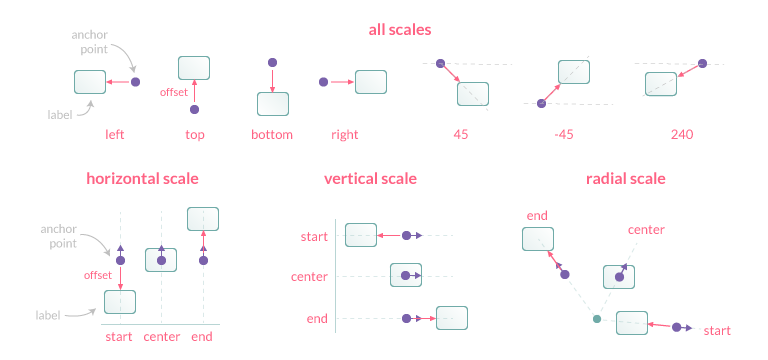positioning.md 2.1 KB
Positioning
Anchoring
An anchor point is defined by an orientation (normalized) vector and a position on the data element. The orientation depends on the scale type (vertical, horizontal or radial). The position is calculated based on the anchor option and the orientation vector.
Supported values for anchor:
center(default): element centerstart: lowest element boundaryend: highest element boundary
Alignment and Offset
The align option defines the position of the label relative to the anchor point position and orientation. Its value can be expressed either by a number representing the clockwise angle (in degree) or by one of the following string presets:
start: the label is positioned before the anchor point, following the same directionend: the label is positioned after the anchor point, following the same directioncenter(default): the label is centered on the anchor pointright: the label is positioned to the right of the anchor point (0°)bottom: the label is positioned to the bottom of the anchor point (90°)left: the label is positioned to the left of the anchor point (180°)top: the label is positioned to the top of the anchor point (270°)
The offset represents the distance (in pixels) to pull the label away from the anchor point. This option is not applicable when align is center. Also note that if align is start, the label is moved in the opposite direction. The default value is 4.
Rotation
This option controls the clockwise rotation angle (in degrees) of the label, the rotation center point being the label center. The default value is 0 (no rotation).
Visibility
The display option controls the visibility of labels (true to show all labels, else false to hide all labels). This option is scriptable, so it's also possible to show/hide a few labels:
display: function(context) {
return context.dataIndex % 2; // display labels with an odd index
}

